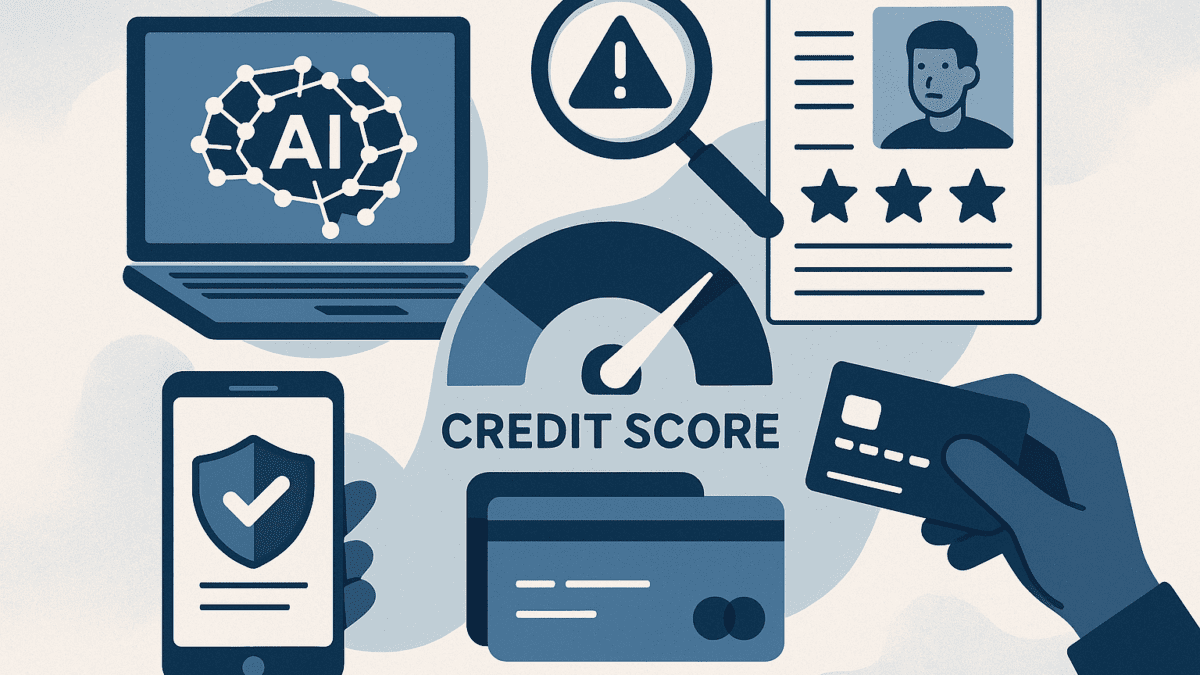AI in FinTech: How Machine Learning Is Transforming Risk, Credit & Fraud Detection
Table of Contents
Introduction
FinTech is no longer just about digital payments or mobile wallets. It’s about intelligent financial systems that can detect fraud before it happens, approve loans in seconds, and assess risk dynamically. At the heart of this transformation is Artificial Intelligence (AI) and Machine Learning (ML).
As consumer expectations evolve and digital transactions increase, FinTech companies are embracing AI to build faster, safer, and more personalized experiences.
Smarter Risk Assessment with AI
Traditional risk models rely on static criteria—income, credit history, or employment. But these models often fail to capture the dynamic nature of a borrower’s financial health.
How AI is changing this:
- Predictive analytics: AI analyzes historical and real-time data to predict potential default or market behavior.
- Alternative data: ML uses data like utility payments, social signals, and mobile usage to assess underbanked users.
- Real-time scoring: AI dynamically updates a customer’s risk profile based on ongoing behavior.
Example: AI startup Zest AI has helped lenders approve more loans with fewer defaults using over 100 data points beyond traditional credit scores.
Revolutionizing Credit Scoring Models
AI enables FinTech firms to move beyond rigid credit bureaus. It offers context-aware, bias-mitigated, and inclusive credit evaluations.
Benefits of ML-based credit scoring:
- Faster approvals: Loan decisions happen in seconds, not days.
- Greater access: Even customers without formal credit history can be evaluated.
- Reduced bias: AI can reduce discriminatory lending if trained with balanced datasets.
Case Study: Upstart’s AI lending model outperforms traditional FICO scoring and has enabled millions to access credit at lower rates.
AI-Powered Fraud Detection in Real Time
As digital transactions grow, so do fraud attempts. Rule-based fraud systems are limited and slow. AI solves this with real-time anomaly detection and continuous learning.
Key techniques used:
- Pattern recognition: Detects suspicious behaviors like login attempts from new locations or unusual transaction sizes.
- Behavioral biometrics: Tracks how users type or hold devices to verify identity.
- NLP for fraud: Natural language processing scans messages and documents for scam patterns.
Example: PayPal uses machine learning to evaluate over 1,000 risk variables per transaction to reduce false positives.
Compliance and Regulation with AI (RegTech)
AI is not just for customer-facing features. It’s also helping FinTechs comply with strict KYC (Know Your Customer) and AML (Anti-Money Laundering) regulations.
How AI streamlines compliance:
- Automated document verification
- Sanction list monitoring in real time
- Behavioral risk scoring for suspicious activity
Tools like Comply Advantage and Feedzai help FinTechs automate compliance and minimize human error.
Challenges to Watch
Despite the benefits, using AI in FinTech comes with concerns:
- Data privacy: AI needs access to sensitive financial data.
- Bias risk: Poorly trained models can perpetuate unfair practices.
- Explainability: Regulators expect transparency in decision-making—AI “black boxes” must become more interpretable.
Pro tip: The future of AI in FinTech lies in explainable and ethical AI, where systems are both powerful and transparent.
Conclusion: The Future is AI-First in FinTech
AI is transforming FinTech from a digital interface into an intelligent ecosystem. Whether it’s preventing fraud, enabling credit access, or reducing risk exposure, machine learning is the engine behind tomorrow’s financial services.
FinTech companies that invest in robust, ethical AI models now will gain a major competitive advantage—by scaling smarter, serving broader audiences, and staying ahead of fraudsters.
Want to accelerate your FinTech platform with smarter technology?
iTMunch offers content syndication, SEO, and lead generation services tailored for FinTech brands.
Get in touch now to grow your visibility and customer base.
See Also: How RegTech Is Helping Fintechs Navigate Compliance in 2025





